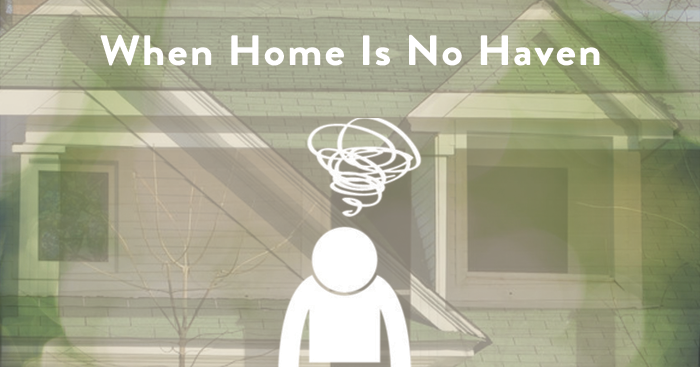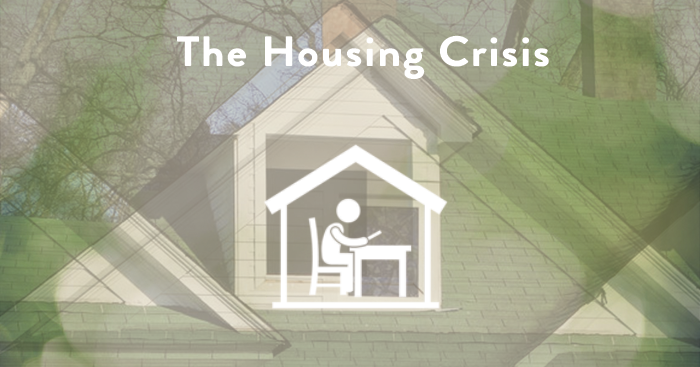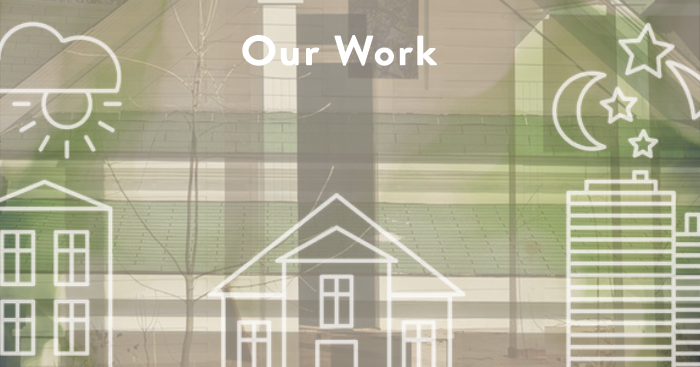
Braman Brothers
A safe home in a stable neighborhood has the potential to be a powerful force in any family’s life. However, homes in these neighborhoods are inaccessible to many Americans. It doesn’t have to be this way.
Braman Brothers Real Estate, LLP works directly with local housing-related organizations to create greater access to safe, affordable, and ethically managed housing in the Twin Cities.
—
“Throughout history, the treatment and arrangement of shelter have revealed more about a particular people than have any other products of the creative arts. Housing is an outward expression of the inner human nature; no society can be fully understood apart from the residences of its members.”
—Kenneth T. Jackson, Crabgrass Frontier

The first time I drove Devin* home from school, he asked me if I was nervous. It was a legitimate question, considering he lived in the most dangerous neighborhood, statistically, in the city of Newark, New Jersey.
As his seventh grade teacher, I felt the automatic need to reassure Devin that, no, I wasn’t nervous, and that “there’s nothing to worry about.” Devin gave a fake half-smile and shook his head. Rival gangs had been engaging in a territorial battle over the block in the Central Ward where Devin lived. Devin, his family, and their neighbors on the block were scared to leave their homes for fear of being caught in the crossfire.
When I walked Devin to his door, hoping to meet his mother and talk about ways we could help Devin focus in class, two men pushed past us out the door. I asked Devin who they were. He didn’t know. As we stepped inside the front door, I could see four kids huddled underneath a single floor lamp in the middle of an empty living room. They were looking through a department store catalogue on the floor. The house was in desperate need of repair—the floorboards sank underneath a carpet that was damp in places and reeked of mold.
Devin asked the group of kids sitting under the lamp if his mom was home. Two said they didn’t know. Two said she went out. Devin looked at me and shrugged, telling me, “I guess she’s not home.” I looked back at him, paralyzed by the reality of the housing situation, paused awkwardly, and said, “OK. Well, I guess I’ll try tomorrow. Have a good night, Devin.”
As I drove home that night, I thought about all of the students whose homes I had visited over the years in both New York City and Newark who struggled with the challenges that come along with substandard housing.
In class, Devin would fall asleep, battle headaches and hunger pangs, and struggle to focus. His homework was almost never complete. But despite the challenges, Devin loved school. He participated in the art club, soccer, martial arts, and took guitar lessons. He built strong relationships with teachers and was a quiet leader among his peers.
Devin worked his way through the rest of middle school and freshmen year of high school, earning Cs and Ds in most of his classes as his home life spiraled downward. The house where he lived continued to deteriorate and neighbors knew it to be hazardous. But neither the city nor the landlord took action.
The week before his sophomore year of high school was set to begin, Devin’s house burned to the ground. Devin was able to save his brother before the house was completely engulfed in flames, but both his mother and grandmother, the only adult family members Devin ever knew, were killed.
While Devin’s story is extreme, children and families all over our country are grappling with the effects of atrocious housing policy and substandard living conditions.
The negative impact of substandard housing on a family’s health, education, and employment cannot be overstated, nor can the federal government’s role in creating these conditions.
*Devin’s name has been changed

Housing is so segregated in the United States that most people cannot begin to conceptualize the disparity because they never encounter the other side.
In 1910, the city of Baltimore adopted a residential segregation ordinance, restricting African Americans to certain blocks, after a black Yale Law School graduate purchased a home in a previously all-white neighborhood. This triggered more than a century of federal, state, and local policies that, in effect, restricted black families to isolated slums.
In 1968, a commission appointed by President Lyndon Johnson concluded that, “[o]ur nation is moving towards two societies, one black, one white—separate and unequal” and that “[s]egregation and poverty have created in the racial ghetto a destructive environment totally unknown to most white Americans.”
For decades, black neighborhoods have been systematically denied services such as mortgage loans, insurance, banking, health care, and even supermarkets. This practice of systematically denying services, either directly or through prejudicially raising prices, is known as redlining. While redlining is now illegal, the communities destroyed by the practice have never fully recovered.
To this day, federal housing subsidy policies still disproportionately direct low-income black families to segregated neighborhoods. In fact, America is more segregated now than it was in 1968.

Through our work, we hope to create greater access to safe, affordable, and ethically managed housing so that children like Devin are not forced to grapple with the crippling effects of poverty housing. We will do this by investing the profits from the sales side of our business into a portfolio of properties that will be help to meet the incredible demand for safe, affordable housing in the Twin Cities. We will also donate ten percent of our net operating profits to Twin Cities Habitat for Humanity to support the work they’re already doing to eliminate poverty housing in the Twin Cities.
In addition, through strategic partnerships with Twin Cities Habitat for Humanity and other community organizations, we hope to make access to decent, affordable housing for all people a matter of conscience. Advocating for ethical housing policies is an essential part of our work.
Finally, we hope to play a central role in educating the community about the impact of housing on a family’s health, education, and employment opportunities. We will do this by collaborating with our community partners to create resources and deliver educational content to help families make informed, healthy choices when it comes to housing.
More About the Braman Brothers
Braman Brothers Real Estate, LLP is a socially conscious real estate sales and investment company. Through our partnership with Coldwell Banker Burnet, we help people buy and sell homes in the Twin Cities. We donate ten percent of our net profit to housing-related charities, while also working directly with local, housing-related organizations to create greater access to safe, affordable, and ethically managed housing in the Twin Cities.
To learn more, check out our website at BramanBrothers.com or find us on Facebook at facebook.com/BramanBrothers.
—
Sources and Recommended Reading:
The Case for Reparations by Ta-Nehisi Coates
Obama Unveils Stricter Rules Against Segregation in Housing by Julie Hirschfeld Davis and Binyamin Appelbaum
Starting Over: What Social Scientists Learned from Katrina by Malcolm Gladwell
Making the Second Ghetto by Arnold R. Hirsch
Crabgrass Frontier by Kenneth T. Jackson
From Ferguson to Baltimore: The Fruits of Government-Sponsored Segregation by Richard Rothstein
—
This is part two of a three-part essay on Joe and Charlie’s entrepreneurial journey. This story is presented in partnership with the Sands Fellowship at University of Minnesota’s Carlson School of Management. Read Part One.